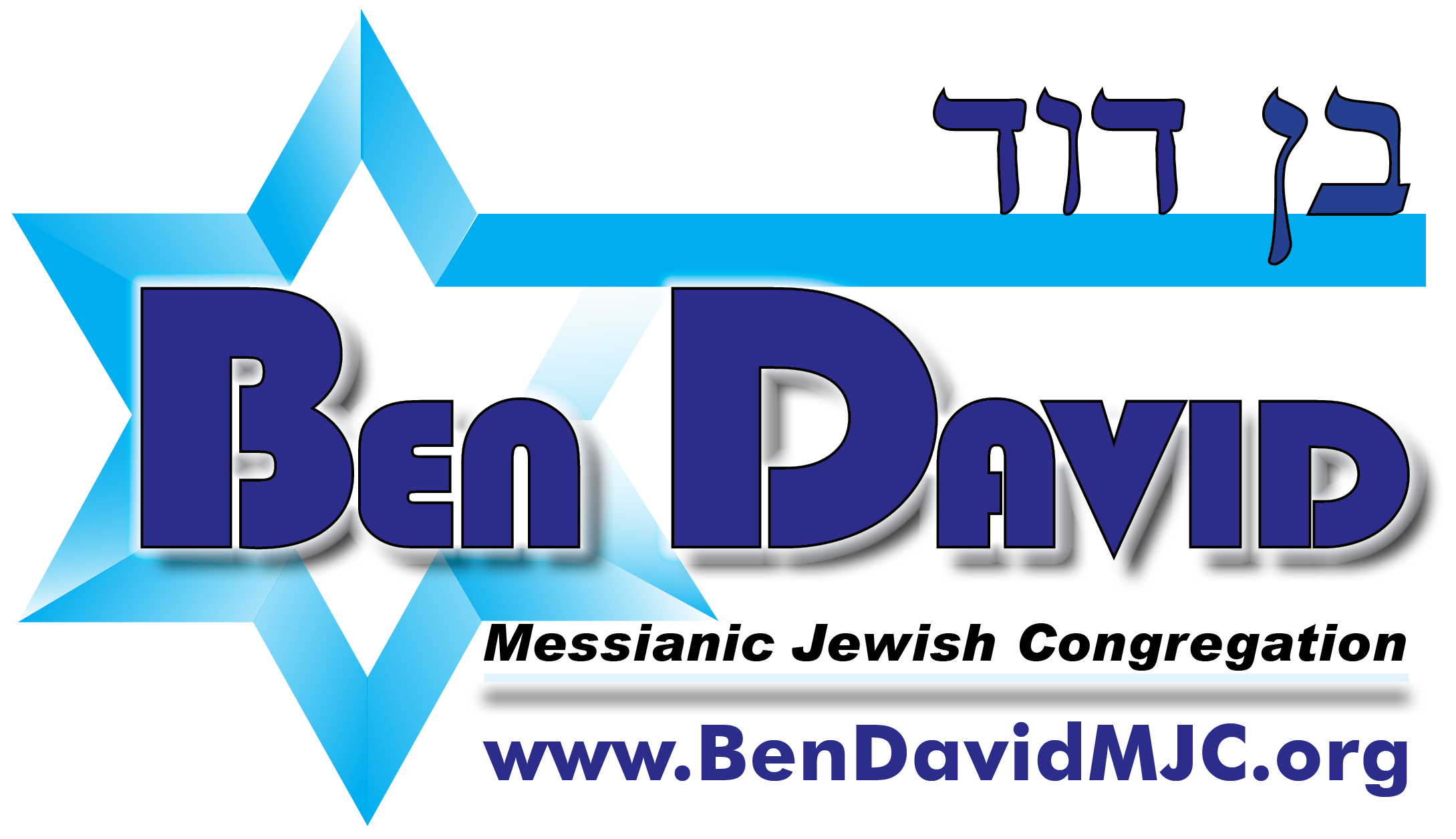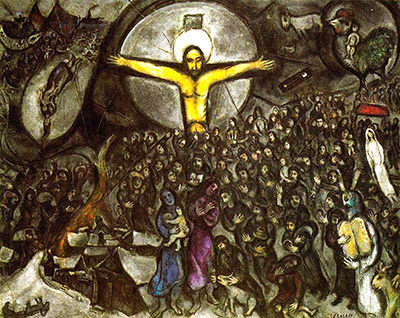Torah: VaYikra 1:1 – 5:26; Haftarah: Isaiah 43:21 – 44:23
YESHUA — OUR KORBAN
Parashah VaYikra starts a new book in the Torah. The oldest name known for this third book is “The Law of the Priests.” But since the service in the Mishkan was given to the tribe of Levi, it was named, in the Septuagint Greek translation, “Leviticus.” In the Jewish tradition of naming a book by a word from the first phrase in the text, this book is known as “VaYikra,” “And Called.”
VaYikra deals with two fundamental concepts: 1) - the offerings to the LORD - symbolized by an animal sacrifice; and 2) - holiness - the purity of life, action, and thought – “You shall be holy for I, the LORD your God, am Holy” our God calls on us to be the outmost we can be in this world based on His standard of ethics.
The offerings to the LORD, or sacrifices, are divided into two categories, individual offerings and congregational offerings. The first offerings are typologies to be performed by every human being, individually. The second offerings are prototypes for the nation of Israel to be performed collectively. These sacrifices were given as mere shadows, or types, of the penalty for sin required by a Holy God and spoke of the redemptive work which would be done by an individual being prophesied throughout the Scriptures and known as the Messiah. Throughout history many claimed to be that Messiah, but only one person's claims were validated, not only by fulfilling all these prophecies, but also by His deeds. Indeed, Messiah Yeshua, the Son of God (as called in Proverbs 30), came to offer Himself as a better sacrifice; a sacrifice that replaced all others sacrifices under the Mosaic covenant.
But why was it necessary for Messiah to give up His life for our atonement? Because it is impossible for a person not to be tainted by sin; therefore, it is impossible for anyone to come in the presence of a Holy God. But you may say, God is too harsh, who can be perfect? Why cannot God receive a person with few little sins but a good person nevertheless? The character of God is incompatible even with the littlest of sins, but He wants us in His presence, so He created a plan of redemption. First, He wanted people to understand what sin is, the destructive effect it has in people’s lives, and what is required to atone for it. But the animal sacrifices even with their graphic imagery were never meant to remove sin otherwise the people under the Mosaic covenant would have stopped offering them year after year. They were just an imagery. A more meaningful sacrifice, a superior sacrifice, was needed to pay for the penalty of sin required by the absolute righteousness of God. Therefore, God in His infinite love for us, sent His own Son to be that superior sacrifice so that everyone would have the opportunity to receive God's forgiveness just by looking at the crucified Messiah and believe, just as the Israelites were looking and believing at the fiery serpent raised in the wilderness by Moshe and were saved. Animal sacrifices were revelations for mankind to fully comprehend the ugliness of sin. Yeshua came and fulfilled the requirement of God expressed in the Torah through these many animal sacrifices, innocent blood must be shed to cover the sin committed.
A sacrifice, in the Mosaic context, can be of three types: a “burnt-offering” expressing the surrendering of oneself to God’s will; a “peace-offering” expressing one’s gratitude for God’s bounty and mercy; or a “sin-offering” expressing sorrow of sinning against God and the firm resolve to be reconciled with Him.
The Parashah begins with these words: “And the LORD called Moshe, and spoke to him from the Tent of Meeting, saying, ‘Speak to the people of Yisrael, and say to them, “When a man among you brings an offering to the LORD, you shall bring it from animals, from the cattle or from the flock shall you bring your offering.” VaYikra 1:1-2
From these opening words the sages left for us insightful teachings.
— “An offering” is the Hebrew word Korban. The meaning of the root of this Hebrew word is "coming near," because an offering is the means to bring ourselves closer to God and to elevate ourselves. Also, notice that the offering must be from clean animals, a live kosher creature must lose its life, not anything else like the offering that Cain brought, of the fruit of the ground.
— “To the LORD,” are the four Hebrew letters YHVH. Throughout the Torah, only this Four-Letter Name of God — the Name representing His Attribute of Mercy — is used in connection with offerings, never the Name Elohim, which represents His Attribute of Judgment. Ancient idolaters believed that animal-offerings were needed to appease the anger of a judgmental, bloodthirsty god. This is totally foreign to Jewish belief. The Torah teaches that offerings are a means to draw closer to the LORD — the Merciful God.
The verse begins by speaking of “an offering to the LORD,” but it concludes with “your offering,” omitting mention of the LORD. Thus, the verse teaches that: if your offering to God comes from yourself — representing your sincere effort to draw closer to Him — then your offering has the exalted status of an offering to the LORD. But if you merely go through the motion of performing the physical acts of the service just as a religious act, then, unfortunately, it remains merely "your" offering.
Even though the animal offerings do not apply to us today the principle of bringing an offering to God — our prayers, our worship, our time, our finances — remains as a teaching in our walk with the Lord and in our quest for holiness. If we merely go through the motion of worshiping and praying to God, but do not put in them our most sincere feelings, feelings that come from deep inside our hearts, our worship and prayers merely hit the ceiling and do not rise to the status of an offering to God.
The Brit Chadashah gives us further insight into the subject of sacrifices, for we read in Hebrews 10:1-10: “For the Torah, since it has only a shadow of the good things to come and not the actual things, can never by the same yearly sacrifices, which they offer continually, make perfect those drawing near. Otherwise, would these not have stopped being offered, because the worshipers, having experienced purification even once, would no longer have had consciousness of sin? But by those sacrifices there is a remembrance and a reminder of sins year after year. For it is impossible for the bulls and goats to take away sins. Therefore, when He (Yeshua haMoshiah) comes into the world, He says, “Sacrifice and offering You did not desire but a body You prepared for Me; Burnt offering and sin offering You have not desired. Then I said, `Look, here I am, I have come—it is written about Me in the scroll.` I desire to do Your will, O God.” He takes away the first system in order to establish the second. And it is by this that we will have been set apart through the Korban (offering) of Yeshua HaMoshiach, once and for all."
Yeshua's sacrifice fulfilled and replaced all other sacrifices under the Mosaic covenant. Not only His sacrifice is all sufficient to forgive sin, but it is the only sacrifice that can remove the guilt of sin once and for all. With the advent of Messiah the Mosaic system of sacrifice was over, because their imagery achieved their purpose and Yeshua's shed blood substituted that of bulls and goats. Therefore, God’s requirement for forgiveness of sin remains and His commandments stand. A sacrifice must be made for the forgiveness of sin, except that He provided the sacrifice. The only thing that remains for us to do is to come to Him with a sincere confession of sins and a repentant heart.
But as we approach Passover we must ask ourselves, are our hearts ready for Passover? From Yeshua's sacrifice on that Roman execution cross we learn that if we believe in Him our lives are eternally secure in His hands, but our hearts may have been contaminated from the world around us and, therefore, affecting our lives and our relationship with God. The Brit Chadashah teaches that even as believers we sin, but we must strive for holiness and, therefore, confess that sin in order to maintain a clean conscience for living a meaningful life. Passover is a beautiful reminder of not only what Yeshua did for us but also the need for searching and confessing that sin.
“And when the hour had come He (Yeshua) reclined at the table and the Moshiach's Shluchim (His apostles) were with Him. And He said to them, “With great longing I have desired to eat this Pesach with you before I suffer. For I say to you that I may by no means eat it until it is fulfilled in the Malchut the LORD.” And having taken the Cup of Redemption, having made the bracha, He said, “Take this and share it among yourselves, for I say to you that from now on by no means shall I drink from the pri hagefen until the Malchut of the LORD comes.” And having taken the Afikoman and having made the haMotzi, He broke the matzah and gave it to them, saying, “This is My body being given for you; this do in remembrance of Me.” And He took the cup similarly after they ate, saying, “This cup is the new covenant in My blood, being shed for you” - Luke 22:14-20.
Yeshua asked us to observe the Passover. Yeshua said, 'Do this in remembrance of Me' and that “this” means partake of the elements of Passover. He said, 'Until I come observe the Passover in remembrance of Me,' because after He comes He will have fulfilled Rosh haShanah, Yom Kippur and Sukkot, then we will observe those in remembrance of Him. But until He comes again what we will do in remembrance of Him is observe Passover, or the Lord's last Seder. Because that is what He had fulfilled for us, as the sacrificial Lamb of God. Therefore, Yeshua asked us to proclaim His death through the Passover observance.
But in order to prepare for the observance of Passover we have to search for “chometz,” for leaven, in our hearts and to get it out of our lives. We have our hearts clean but maybe we overlook the little crumbs in dark corners. Leaven in Scripture is always symbolic of sin, but why is sin associated with leaven? Because just as a little leaven rises and leavens the whole lump of dough, so, too, a little sin can spread and ruin our lives, our fellowship with Him and with each other.
That was the case in Corinth, so Rav Shaul (apostle Paul) says in the first letter to the Corinthians chapter 5, verse 7: “Clean out the old leaven, that you may be a new lump, just as you are in fact unleavened [in God's eyes]. For Messiah our Passover [Lamb] also has been sacrificed.“ What he is saying to us is: search for chometz, clean out your heart, then he continues in verse 8: ”Let us therefore celebrate the feast not with old leaven, nor with the leaven of malice and wickedness, but with the unleavened bread [the matzah] of sincerity and truth.“
Let's search for chometz in our lives, let's clean our hearts and be holy for He is Holy, and may this Passover feast be celebrated with a true Messianic spirit and joy.
Shabbat Shalom.



